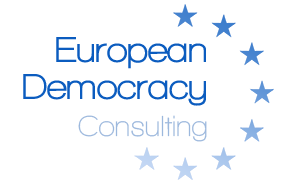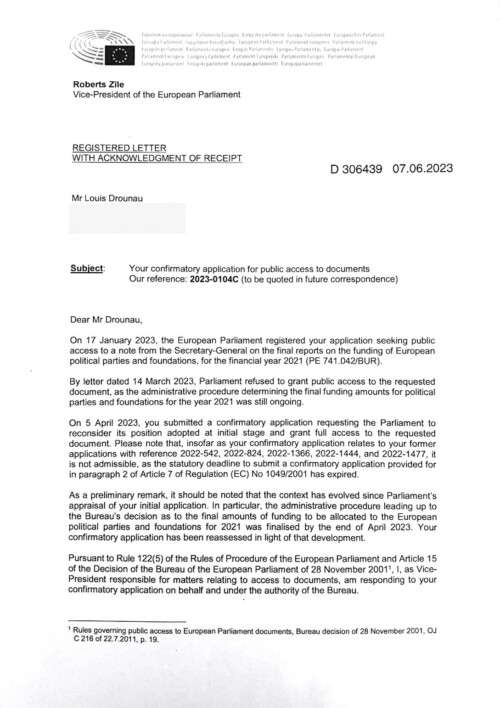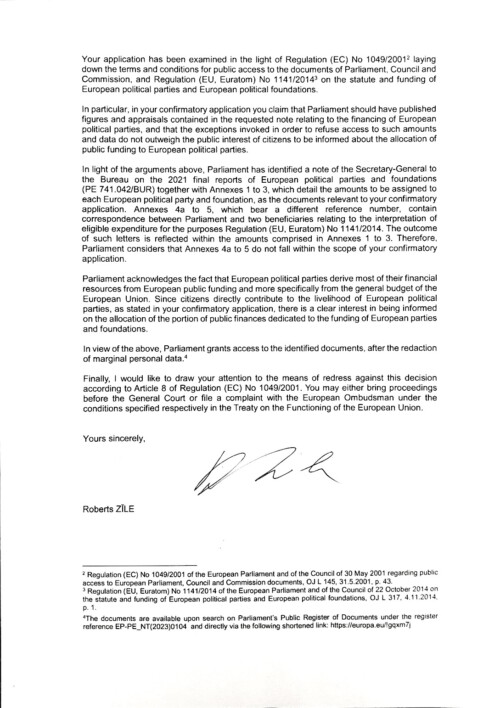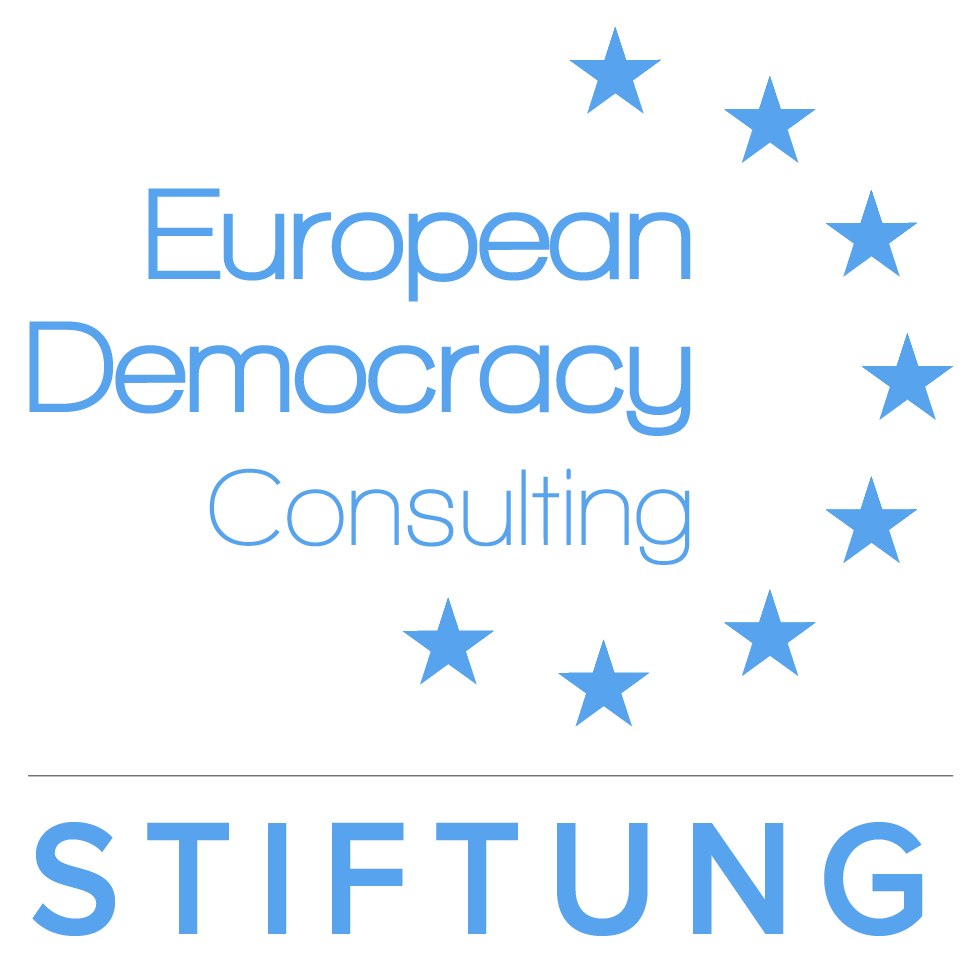On 12 June, European Democracy Consulting received a reply to its “confirmatory application” from the European Parliament, in what constitutes an important victory for European citizens and transparency on European political parties.
Over the past several years, European Democracy Consulting has lodged requests for dozens of documents to the European Parliament in the framework of Regulation 1049/2001 on citizens’ right to public access to documents. The requested documents related to the funding of European political parties.
They included decisions on the amount of public funding awarded to European parties (decision made at the end of year N-1 for funding in year N), as well as the final accounts of European parties, which wrap up the public funding process (early in year N+2). These documents are prepared by the relevant services of the Secretariat-General of the European Parliament (most notably by the Political Structures Financing Unit, PSFU), and adopted by the Bureau of the Parliament.
Invariably, however, these documents were provided by the European Parliament with heavy redactions over the parts covering the EP’s reasoning for its decisions. As a result, the final decision (i.e. funding amounts) was available, but not the reasons for these decisions. Unredacted documents were only provided five years after the discharge of the European Parliament’s budget, usually two years after a given financial year. As a result, unredacted documents would only be available seven to eight years after they were adopted, negating any meaningful effort at real transparency on the funding of European parties.
In April, following a negative decision on a request for document, European Democracy Consulting decided to challenge the EP’s decision to redact these documents. Firstly, we argued that, by default, these documents should be made available in full under Regulation 1049/2001. Secondly, we argued that the EP’s legal arguments to seek a derogation from its requirement to provide these documents in full were not valid; in particular, we argued that the EP’s use of the ECJ judgment “Sweden & Turco v Council of the European Union” was self-serving and partial, as it omitted important elements running directly against its arguments. Finally, we claimed that, even if the EP’s arguments were indeed receivable, there was an overriding public interest in the publication of documents relating to the funding of European parties, given these parties’ role in European democracy and their extensive funding by European citizens.
In its reply, the European Parliament chose to not to respond to our arguments challenging their reasoning. Instead, it recognised that citizens indeed had “a clear interest in being informed on the allocation of [public funding]” to European parties and foundations, and provided the requested document free of redactions. While we would have wanted to see our arguments recognised on their merit, this admission alone has broad implications.
Although the European Parliament focused its decision on a single document (the one its had initially refused to provide), its new stance should now apply equally to all documents relating to the funding of European parties. As a result, all such documents should now be available to citizens in full and without delay, instead of many years later. This is a clear victory for transparency.
Another, separately requested funding decision for the financial year 2023 was provided on 13 June, also free of redactions, in a clear break from previous practice, thereby seemingly confirming that the European Parliament’s decision would apply to other similar documents.
European Democracy Consulting notes that, far from the five to six weeks it usually takes the Parliament to provide its 6-to-8-page replies, it took nine weeks to provide a two-page reply. This particularly long duration, combined with a very short length, gives a distinct feeling that the Parliament’s letter does not reflect the entirety of the discussions that took place.
Additionally, by side-stepping our legal arguments instead of refuting them, the European Parliament seems keen to avoid openly acknowledging that the arguments it has long relied on would not hold in Court, and, therefore, to continue relying on similar arguments for future requests on similar but different topics.
In order to seize on the momentum of this decision, European Democracy Consulting immediately placed a request for 13 documents relating to the funding of European parties for the financial years 2015 to 2022, using the Parliament’s confirmation of a “clear interest” as basis for the provision of the these documents in full. These documents had previously been provided with redactions.
Overall, this decision is a clear victory for European citizens and for transparency. Citizens fund almost the entirety of European political parties’ budgets with their tax money, via European- and national-level public funding, and these parties seek to represent citizens at the European level.
As a result, Parliament must be accountable for its distribution of public funds to European parties, and citizens ought to know how and why these parties are funded the way they are. Political party funding transparency is an essential pillar for democracy.

The very same principle is at the heart of our upcoming European Party Funding Observatory, which will contain all the documents obtained and provide clear visualisations on the funding of European parties since 2004.
Finally, European Democracy Consulting wishes to underline that our decision to challenge the European Parliament’s arguments, which we had long taken for granted, was directly inspired by newspaper reporting on Emilio de Capitani’s success when he took the Council to the European Court of Justice, and the Court requested that the Council grant access to its legislative working documents.
This is one more proof of the importance of media coverage of European affairs, and how this coverage can directly impact citizens and their proper enjoyment of their right in a functioning democracy.



